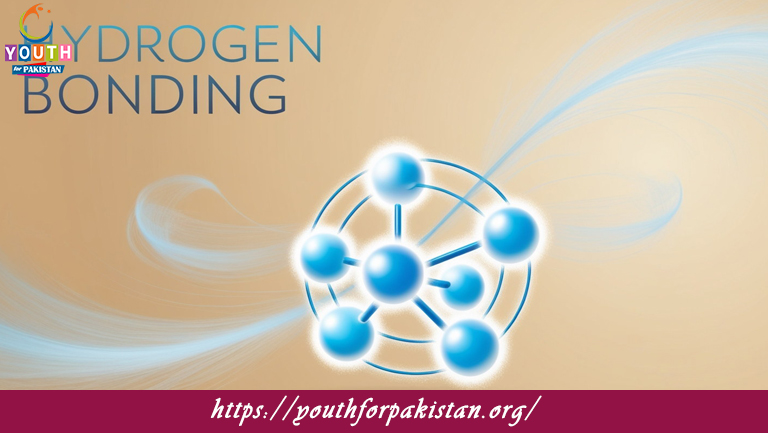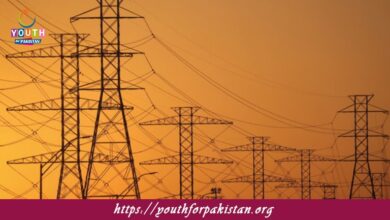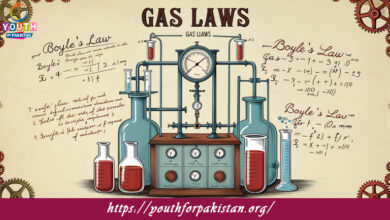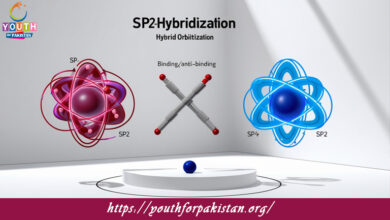Hydrogen Bonding MDCAT MCQs with Answers

Welcome to the Hydrogen Bonding MDCAT MCQs with Answers. In this post, we have shared Hydrogen Bonding Multiple Choice Questions and Answers for PMC MDCAT 2024. Each question in MDCAT Chemistry offers a chance to enhance your knowledge regarding Hydrogen Bonding MCQs in this MDCAT Online Test.
Hydrogen bonding occurs between:
a) Two hydrogen atoms
b) A hydrogen atom and a metal atom
c) A hydrogen atom and a highly electronegative atom
d) Two non-metals
Which of the following elements is commonly involved in hydrogen bonding?
a) Carbon
b) Oxygen
c) Sodium
d) Calcium
In which of the following molecules does hydrogen bonding occur?
a) HCl
b) CH4
c) H2O
d) CO2
Which property is primarily responsible for the high boiling point of water?
a) Ionic bonding
b) Van der Waals forces
c) Hydrogen bonding
d) Metallic bonding
In hydrogen fluoride (HF), hydrogen bonding occurs between:
a) Hydrogen and fluorine atoms within the same molecule
b) Hydrogen atoms of different molecules
c) Fluorine atoms of different molecules
d) Hydrogen and oxygen atoms
Which of the following substances exhibits hydrogen bonding?
a) Hydrogen chloride
b) Ammonia
c) Methane
d) Neon
Hydrogen bonds are generally:
a) Stronger than ionic bonds
b) Weaker than covalent bonds
c) Stronger than covalent bonds
d) As strong as metallic bonds
Which of the following is a characteristic feature of hydrogen bonding?
a) Formation of an ionic bond
b) Attraction between a hydrogen atom and a metal atom
c) Attraction between a hydrogen atom and an electronegative atom
d) Formation of a covalent bond
In which of the following compounds does hydrogen bonding not occur?
a) NH3
b) H2O
c) CH4
d) HF
Which of the following pairs of atoms can form hydrogen bonds?
a) Hydrogen and carbon
b) Hydrogen and chlorine
c) Hydrogen and oxygen
d) Hydrogen and sulfur
Hydrogen bonding is responsible for which of the following phenomena in water?
a) Low density of ice
b) High density of water
c) Low boiling point of water
d) High reactivity of water
Which molecule shows hydrogen bonding due to the presence of a hydrogen atom directly bonded to a highly electronegative atom?
a) H2S
b) H2O
c) CH4
d) HCl
In hydrogen bonding, the hydrogen atom acts as a:
a) Donor
b) Acceptor
c) Both donor and acceptor
d) Neither donor nor acceptor
Which of the following does not exhibit hydrogen bonding?
a) Water
b) Ethanol
c) Methane
d) Ammonia
Hydrogen bonding in DNA molecules is responsible for:
a) The primary structure
b) The secondary structure
c) The tertiary structure
d) The quaternary structure
Which intermolecular force is stronger than hydrogen bonding?
a) Van der Waals forces
b) Ionic bonding
c) Metallic bonding
d) London dispersion forces
Hydrogen bonding is a type of:
a) Covalent bonding
b) Ionic bonding
c) Dipole-dipole interaction
d) Metallic bonding
Which of the following substances has hydrogen bonds that contribute to its high boiling point?
a) Acetone
b) Water
c) Methanol
d) Ethanol
In the context of hydrogen bonding, the term “donor” refers to:
a) An electronegative atom
b) A hydrogen atom
c) A metal atom
d) A neutral atom
The strength of hydrogen bonds is affected by:
a) Temperature
b) Pressure
c) The presence of other bonds
d) All of the above
Which of the following molecules contains hydrogen bonding but does not have an N-H, O-H, or F-H bond?
a) Hydrogen cyanide (HCN)
b) Ammonia (NH3)
c) Water (H2O)
d) Hydrogen fluoride (HF)
Which of the following compounds would have the strongest hydrogen bonds?
a) H2O
b) HF
c) NH3
d) CH3OH
Hydrogen bonding in proteins is critical for which level of protein structure?
a) Primary
b) Secondary
c) Tertiary
d) Quaternary
Hydrogen bonds in water contribute to its high:
a) Melting point
b) Boiling point
c) Density
d) Vapor pressure
Which of the following is not a consequence of hydrogen bonding in water?
a) High surface tension
b) High boiling point
c) High heat of vaporization
d) High density of water vapor
The angle between hydrogen bonds in water is approximately:
a) 90°
b) 120°
c) 180°
d) 104.5°
Which of the following substances will exhibit hydrogen bonding?
a) Carbon dioxide
b) Hydrogen sulfide
c) Sulfur dioxide
d) Ethanol
Hydrogen bonding is strongest in which of the following molecules?
a) H2O
b) HF
c) NH3
d) CH3OH
Which property of water is a direct result of hydrogen bonding?
a) Low boiling point
b) High solubility in organic solvents
c) High specific heat capacity
d) Low surface tension
In a hydrogen bond, the hydrogen atom is typically:
a) Partially positive
b) Partially negative
c) Neutral
d) Fully positive
The intermolecular hydrogen bond in DNA is between:
a) Two identical DNA strands
b) Two different DNA bases
c) Phosphate groups
d) Sugar molecules
Which of the following molecules will not participate in hydrogen bonding?
a) H2O
b) NH3
c) CH4
d) HF
Hydrogen bonding in proteins is responsible for the formation of:
a) Alpha helices
b) Beta sheets
c) Both alpha helices and beta sheets
d) Primary structure
In an alcohol molecule, hydrogen bonding occurs between:
a) Hydroxyl group and alkyl group
b) Hydroxyl group and another hydroxyl group
c) Alkyl group and carbonyl group
d) Carbonyl group and alkyl group
Which of the following is true about hydrogen bonds?
a) They are stronger than covalent bonds
b) They are weaker than covalent bonds
c) They are equivalent in strength to ionic bonds
d) They do not affect boiling and melting points
The presence of hydrogen bonding in a molecule affects its:
a) Solubility in non-polar solvents
b) Reactivity with metals
c) Polarity and solubility in water
d) Density and color
Which of the following substances will exhibit hydrogen bonding due to the presence of a hydrogen atom directly bonded to a highly electronegative atom?
a) H2S
b) HF
c) HCl
d) CH4
The strong hydrogen bonding in water contributes to its:
a) Low boiling point
b) Low density
c) High viscosity
d) High surface tension
Which of the following statements about hydrogen bonds is true?
a) They are permanent dipole-dipole interactions
b) They involve only one molecule
c) They are stronger than covalent bonds
d) They occur between a hydrogen atom and an electronegative atom
The hydrogen bonds in water lead to its:
a) Low boiling point
b) Low density
c) High viscosity
d) High solubility in organic solvents
If you are interested to enhance your knowledge regarding Physics, Chemistry, Computer, and Biology please click on the link of each category, you will be redirected to dedicated website for each category.





